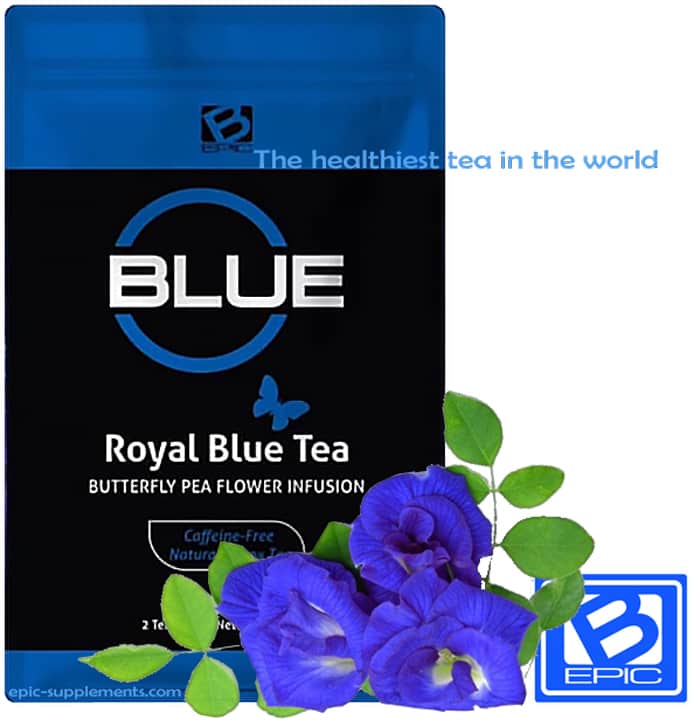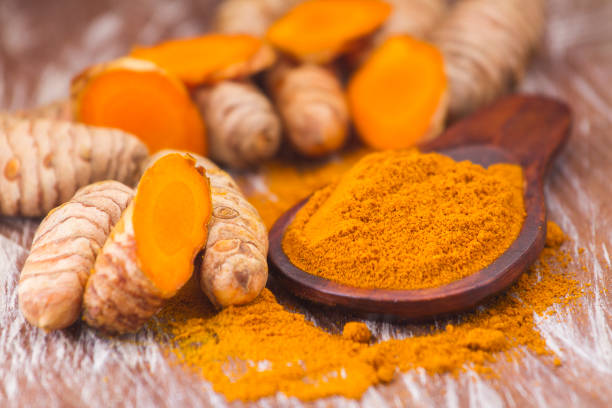
As you may know weight loss teas are all the rage on the internet these days. From Golden OOlong Tea, to myriads of other detox teas claiming things from weight loss to healing hard to treat diseases.
This blue tea is nothing new, but it’s new to many of us who are necessarily tea connoisseurs.
With it’s vibrant color, the tea is sure to pique the curiosity of those who see it.
The tea is made from butterfly pea-flower, a plant from the pea family. Its origins are traced back to tropical Asia. It’s a fridge dried whole flower which is caffeine-free.
The Tea is Amazing for Diabetics
The tea helps regulate blood sugar levels. It is suggested that you drink a 4 to 8 ounce cup of the tea in between meals. Doing this will lower the insulin spike that we get from eating.
Weight Loss Without the Caffeine
The major player in the fat loss game in blue tea is the catechin epigallocatechin or EGCG. This catechin speeds up calorie burning and boosts the metabolism. How it does this is simple. In order to burn fat, our body must first break it down in the fat cell and move it out to the bloodstream. Our bodies have hormones that burn fat really well. Hormones like norepinephrine aka adrenaline, burn fat. EGCS can inhibit an enzyme that breaks down the hormone norepinephrine. When this enzyme that breaks down our fat burning friend is blocked from doing its job, our norepinephrine increases, and our bodies are able to burn more fat. In fact studies have shown that blue tea has more EGCG in it compared to other teas.
Antioxidant Rich Tea
The tea is full of antioxidants, this makes the tea a great for anti-ageing. The tea also is said to be great for the skin, hair and nails, because of it’s high antioxidant content.
The Blue Tea That I’m Using
My blue tea is extra special if you ask me. That’s because on top of the natural detoxing elements that blue pea tea naturally has. This particular company added some other heavy hitters in the tea to shake things up a bit. Ingredients like
- Blessed Thistle (Cnicus benedictus)
- Senna Alexandrina (Cassia acutifolia)
- Pawpaw (Carica papaya)
- Marshmallow (Althaea officinalis)
- Ginger
- Myrrh
add an extra boost to cleansing/detoxifying effect of the tea.
Blessed Thistle: Blessed thistle has been used for more than 2,000 years to stimulate appetite, support bile secretion, support liver health, support circulation, promote hormone balance, and more. Historically, herbalists used blessed thistle as a general stimulant and as a tonic to support the digestive tract. Bitter herbs such as blessed thistle help stimulate organs into a reflex action, especially in the liver and female reproductive organs. It also has an expectorant effect on the upper respiratory system, which may temporarily ease symptoms related to seasonal health challenges.
Senna: It is used to treat constipation and also to clear the bowel before diagnostic tests such as colonoscopy. Senna is also used for irritable bowel syndrome (IBS), anal or rectal surgery, tears in the lining of the anus (anal fissures), hemorrhoids, and weight loss.
Paw Paw: The pawpaw or papaya is reputed to carry the most health benefits of any fruit and grows in abundance around the Pacific Islands. It’s been touted as been good for raising immunity levels, improving vision, relieving menstrual pain for women, and even anti-cancer properties.
Marshmallow: Marshmallow root (Althaea officinalis) is a perennial herb that’s native to Europe, Western Asia, and Northern Africa. It’s been used as a folk remedy for thousands of years to treat digestive, respiratory, and skin conditions.
Ginger: Ginger contains powerful properties, calledgingerols, shoals, gingerdiones, which are rich with antioxidant, antibacterial and anti-inflammatory properties that may help to ward off these diseases. Ginger is also rich with phytochemicals that help aid digestion and settling upset stomachs. These digestive properties help to stimulate the body’s natural cleansing and detoxifying process by eliminating waste and toxins. These properties may also thin blood, improve blood circulation and prevent blood from clotting. Not to mention ginger is known to aid with inflammation, menstrual cramps, and it also has anti-cancer properties too.
Myrrh: You know that if they brought this stuff to baby Jesus it’s some powerful stuff. In fact it would take another article to dig deep into the benefits of using myrrh. It’s great for immune health, because it was used in ancient times to purify the air. In recent studies, it has been found that myrrh can directly kill bacteria, as well as stimulate the immune system to make more white blood cells, which also kill bacteria. Myrrh helps with pain management. Myrrh oil contains compounds that interact with opioid receptors and tell your brain you’re not in pain. Myrrh also blocks the production of inflammatory chemicals that can lead to swelling and pain. It’s also a powerful antioxidant.
The formulators of this tea did their thing if you ask me. They placed ingredients in the tea that matter to us regular folks that need that competitive edge. I look at like this. Blue tea was already a star on it’s own, but when you add other allstar ingredients in the mix, you have just turned the tea into a Health Superhero.
You can find out more or purchase Here






